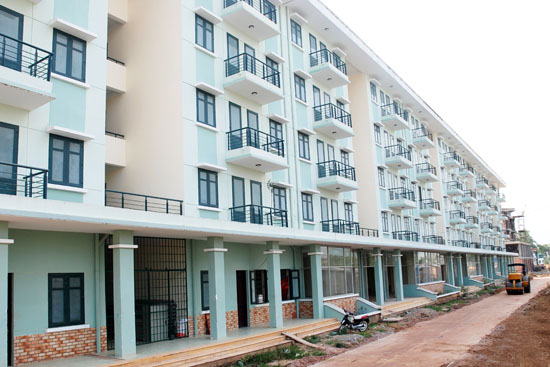Unlike the current Ordinance on Prices which only regulates price appraisal enterprises, the draft Law on Prices prepared by the Ministry of Finance has added another form of appraisal organization.
Regarding appraisal subjects, the Price Ordinance only mandates that state-owned assets must be appraised. Meanwhile, the Draft Price Law stipulates two groups of assets.
First, real estate; movable property including machinery, equipment, and goods, services; enterprise value; forests; water surfaces; natural resources, minerals; rights to exploit various natural resources, minerals; infrastructure; intellectual property rights and other intangible assets; financial assets (types of valuable papers); other assets, goods, services in the domestic and international markets at the request of agencies, organizations, individuals.
Second, state assets that must be appraised under the Law on the Management and Use of State Property.
Addition of a type of appraisal organization
According to the analysis of the Ministry of Finance, the Price Ordinance stipulates that valuation activities are performed by enterprises that meet the conditions and have the capacity to provide such services. This means that for state assets requiring appraisal, the managing, using, or procuring agencies or organizations must hire valuation services from valuation enterprises.
However, for business purposes, most valuation enterprises and their branches issuing valuation certificates are based in major cities or provinces with developed economies and real estate markets; (currently over 88% of valuation enterprises and branches are located in Hanoi, Ho Chi Minh City, Hai Phong, Da Nang, and Can Tho). Other localities, especially mountainous, remote, and isolated areas, face significant difficulties in appraising state assets (such as high appraisal costs and lack of prompt services) due to the absence of local valuation enterprises or branches and the distance from major centers, particularly when procuring state assets.
Moreover, due to unclear regulations regarding the rights and responsibilities of local financial agencies in checking and supervising valuation activities and results, collusion between valuation enterprises and those in authority within managing, using state assets agencies or organizations can lead to overvaluation during procurement and undervaluation during the sale or liquidation of state assets, causing losses to the state budget. This necessitates the strengthening of management and supervision of valuation activities of valuation enterprises; simultaneously, establishing state valuation organizations to meet the valuation needs of state assets.
Therefore, besides valuation enterprises as prescribed in the Price Ordinance, the Draft Price Law adds a type of state valuation organization. This regulation aims to enhance the management and use of state assets more effectively.
The draft also specifies that state valuation only carries out valuation of assets procured from the state budget; state assets leased, rented, transferred, sold, liquidated as per the Law on the Management and Use of State Property. Meanwhile, valuation enterprises conduct valuations for all types of assets needing appraisal in society, including assets procured from the state budget when required.
Legal representative of a valuation enterprise must have at least 3 years of experience
Regarding valuation enterprises, the Draft Law stipulates: valuation enterprises are established following the types of production and business organizations regulated by enterprise laws. The drafting agency mentioned that practical valuation activities in recent years show that each type of valuation enterprise has its advantages and drawbacks, and can effectively provide valuation services in conformity with the law.
Concerning the establishment and operation conditions of valuation enterprises, the Draft Law stipulates two conditions: First, meeting the conditions for enterprise establishment as per relevant enterprise laws. Second, having enough licensed appraisers registered for valuation practice as per the Government of Vietnam regulations.
A new point in the conditions for establishing a valuation enterprise is that the legal representative must be a licensed appraiser with at least 3 years of valuation practice experience.
During the valuation process, the enterprise must ensure an adequate number of licensed appraisers registered for practice as per legal regulations.
Source: Tuan Khang - quangninh.gov.vn
 Article table of contents
Article table of contents









